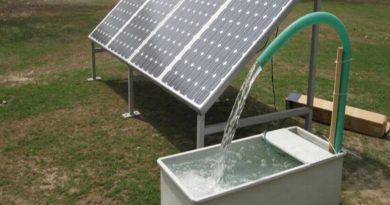Ghana unveils $550b energy transition and investment plan towards achieving net-zero carbon emissions by 2060
At a Global Africa Business Initiative event in New York yesterday, His Excellency, Nana Akufo-Addo, President of the Republic of Ghana, unveiled the nation’s new Energy Transition and Investment Plan estimated at about $550 billion.
The strategy demonstrates Ghana’s dedication to battling climate change and promoting economic growth simultaneously. It outlines a realistic plan for Ghana to implement low-carbon solutions in all significant areas of its economy, including oil and gas, industry, transportation, cooking, and power, in order to reach net-zero energy-related carbon emissions by 2060.
The plan is the primary means by which the Ghanaian government hopes to solicit support for its energy transition from investors and the global community.
The plan’s recommendations as a whole offer the international community a chance to invest USD 550 billion in Ghana’s sustainable development. If the proposal is fully implemented, the economy of Ghana would gain 400,000 net jobs.
Previously, the country’s Energy Transition Framework set a goal of reaching net zero by 2070; however, this new plan demonstrates that Ghana has raised its ambition and is now aiming for net zero by 2060.
The strategy suggests a number of technological and industry improvements. By 2060, the targeted reduction would be more than 90% covered by four primary decarbonization technologies: renewable energy, low-carbon hydrogen, battery electric cars, and clean cookstoves.
The plan’s recommendations as a whole offer the international community a chance to invest USD 550 billion in Ghana’s sustainable development. If the proposal is fully implemented, the economy of Ghana would gain 400,000 net jobs.
Previously, the country’s Energy Transition Framework set a goal of reaching net zero by 2070; however, this new plan demonstrates that Ghana has raised its ambition and is now aiming for net zero by 2060.
The strategy suggests a number of technological and industry improvements. By 2060, the targeted reduction would be more than 90% covered by four primary decarbonization technologies: renewable energy, low-carbon hydrogen, battery electric cars, and clean cookstoves.
According to the most recent data and research, “This ground-breaking Energy Transition and Investment Plan sketches out Ghana’s road to attain net-zero emissions by 2060, ensuring that as our economy prospers, it does so in harmony with the environment. His Excellency Nana Akufo-Addo, President of the Republic of Ghana, said, “This plan is a testament to our dedication to fostering green industries, nurturing the evolution of cutting-edge low-carbon technologies, and advancing our country towards a sustainable industrial revolution while giving equal growth opportunities to men and women.
“Ghana’s commitment to a fair and just energy transition has resulted in an ambitious strategy that makes the case for energy-efficient and low-carbon solutions throughout the country’s entire energy system. According to Damilola Ogunbiyi, CEO and Special Representative of the UN Secretary-General for Sustainable Energy for All, and Co-Chair of UN-Energy, these solutions offer partners and investors from all over the world a huge opportunity to support climate action and sustainable development in Ghana.




